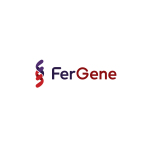- Data highlight a need for bladder-sparing therapies to improve outcomes for patients with high-grade, non-muscle invasive bladder cancer
CAMBRIDGE, Mass.–(BUSINESS WIRE)–FerGene, a newly created gene therapy company committed to revolutionizing the treatment of bladder cancer, today announced it will present research at the 2020 American Society of Clinical Oncology (ASCO) Genitourinary Cancers Symposium taking place February 13-15 in San Francisco, California.
FerGene will present two posters on high-grade, Bacillus Calmette-Guérin (BCG) unresponsive non-muscle invasive bladder cancer (NMIBC), including an analysis of real-world utilization and outcomes of bladder preservation therapies as well as safety and efficacy results from the Phase 3 study of nadofaragene firadenovec, the company’s investigational intravesical gene therapy in development for patients with high-grade, BCG-unresponsive NMIBC.
Details for the presentations are as follows:
Poster (Abstract 442)
Presented by Stephen A. Boorjian, MD; Professor of Urology, Vice Chair of Research for the Department of Urology, and the Director of the Urologic Oncology Fellowship at Mayo Clinic
Time: Friday, February 14, 2020, 7:20AM – 7:25AM (Rapid Abstract Presentation) and 12:15PM – 1:45PM PST
Poster (Abstract 453)
Senior Author: Ashish Kamat, MD; Professor of Urology and Director of Urologic Oncology Fellowship at MD Anderson Cancer Center
Time: Friday, February 14, 2020, 12:15PM – 1:45PM PST
About nadofaragene firadenovec
Nadofaragene firadenovec (rAd-IFN/Syn3) is an investigational intravesical gene therapy being developed as a treatment for patients with high-grade, BCG-unresponsive NMIBC. It is an adenovirus vector-based gene therapy containing the gene for interferon alfa-2b, administered by catheter into the bladder once every three months. The virus is designed to enter the cells of the bladder wall, where it breaks down, releasing the active gene to do its work. The internal gene/DNA machinery of the cells ‘picks up’ the gene and translates its DNA sequence, resulting in the production of high and durable quantities of interferon alfa-2b protein, a naturally occurring protein the body uses to fight cancer. This novel gene therapy approach thereby uses the patient’s own bladder wall cells to produce interferon, enhancing the body’s natural defenses against the cancer.
A Biologics License Application for nadofaragene firadenovec has been submitted to the U.S. Food and Drug Administration (FDA) for the treatment of patients with high-grade, BCG-unresponsive NMIBC. The application was granted Priority Review, and nadofaragene firadenovec previously received Fast Track and Breakthrough Therapy Designations. The FDA has set a Prescription Drug User Fee Act (PDUFA) goal date of May 2020.
About Non-Muscle Invasive Bladder Cancer (NMIBC)
NMIBC is an early form of bladder cancer which is present in the superficial layer of the bladder and has not invaded deeper into the bladder or spread to other parts of the body.1 It is estimated that there will be approximately 81,000 new cases of bladder cancer in the U.S. in 2020; more than 70% of these cases present as NMIBC.2,3 In patients with high-grade NMIBC, intravesical BCG is the recommended treatment; however, between 30% and 50% of cases with high-grade disease will recur.4 The outcome for BCG-unresponsive patients is poor, with total cystectomy (complete removal of the bladder) often being the recommended next treatment option.5
About FerGene
FerGene, a newly created gene therapy company committed to revolutionizing the treatment of bladder cancer, has been created to potentially commercialize nadofaragene firadenovec in the U.S. and to advance global clinical development. FerGene’s goal is to bring this promising therapy to a patient population which has seen little improvement in their standard of care over the past twenty years. Learn more at www.fergene.com.
1 Anastasiadis A, de Reijke TM. Best practice in the Treatment of Nonmuscle Invasive Bladder Cancer. Ther Adv Urol. 2012;4(1):13-32
2 Maruf, M et al., Non invasive bladder cancer: a primer on immunotherapy. Cancer Biol Med. 2016;13(2):194-205.
3 Ghatalia, Pooja et al., Approved checkpoint inhibitors in bladder cancer: which drug should be used when?. Therapeutic advances in medical oncology vol. 10 1758835918788310. 30 Jul. 2018, doi:10.1177/1758835918788310.
4 Cambier S et al., EORTC Nomograms and Risk Groups for Predicting Recurrence, Progression, and Disease-specific and Overall Survival in Non–Muscle-invasive Stage Ta–T1 Urothelial Bladder Cancer Patients Treated with 1–3 Years of Maintenance Bacillus Calmette-Guérin. European Urolology. 2016, Vol. 69(1): 60-69.
5 Cookson, M et al., Use of intravesical valrubicin in clinical practice for treatment of nonmuscle-invasive bladder cancer, including carcinoma in situ of the bladder. Therapeutic Advances in Urology. 2014, Vol. 5(5):181-191.
Contacts
Media:
Terri Mueller
Head, Communications & Advocacy
FerGene
terri.mueller@fergene.com

